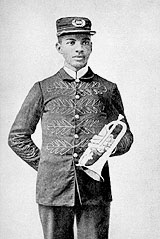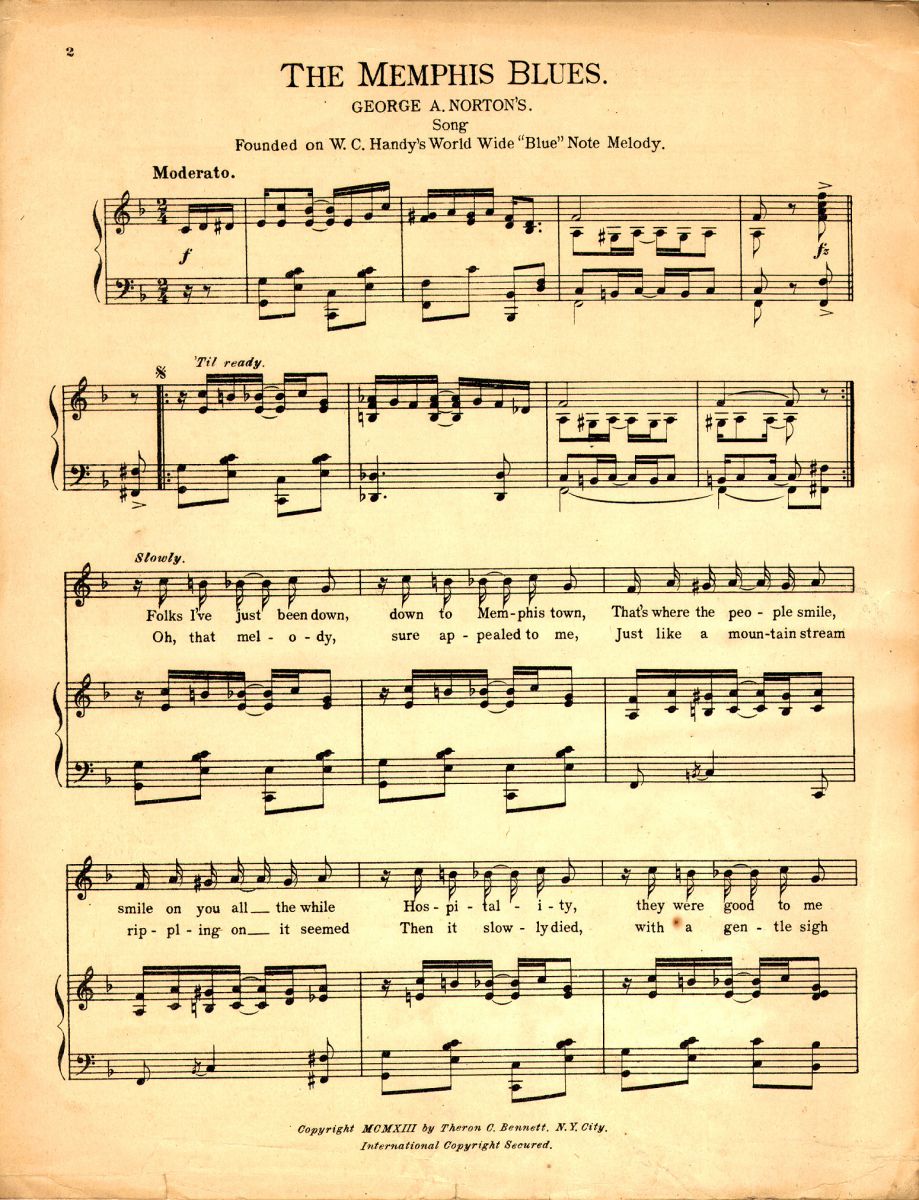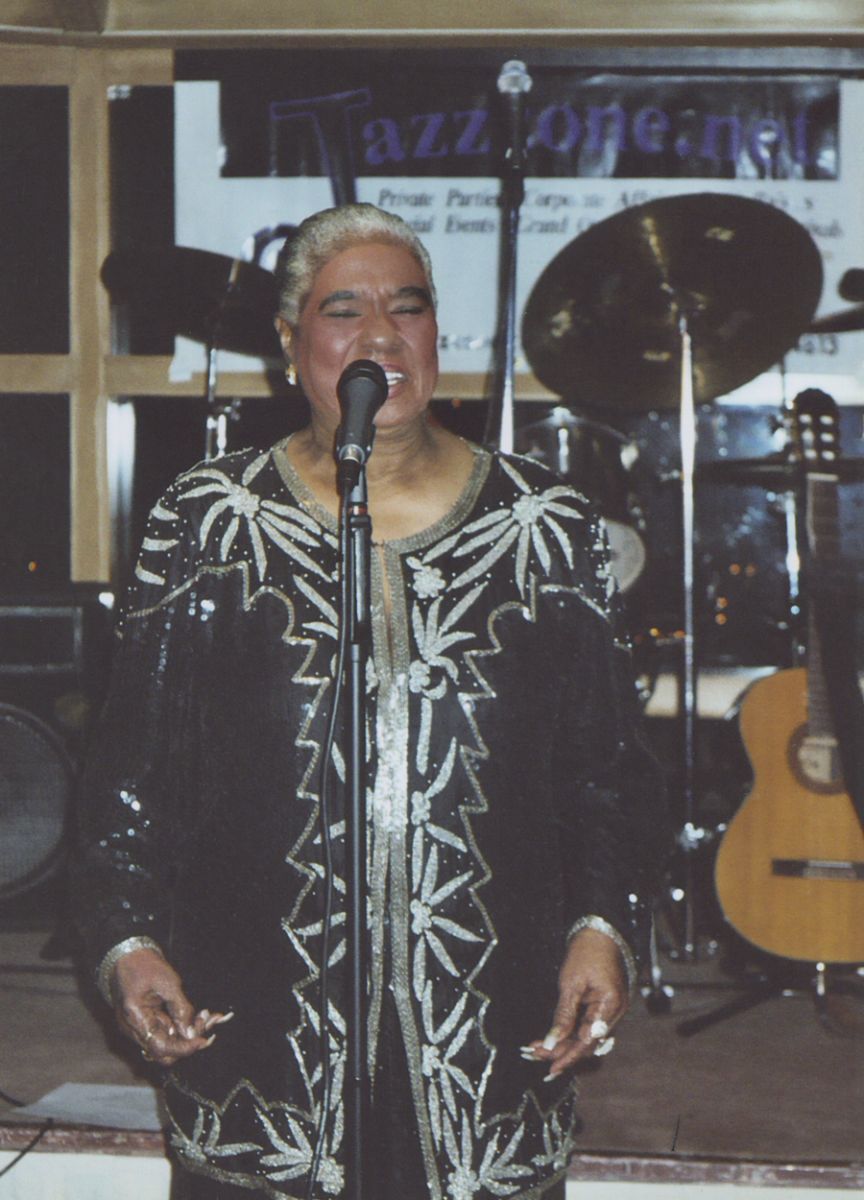
W.C. Handy at age 19. Photo in public domain.
This edition of Riverwalk Jazz celebrates the man who gave America the blues. William Christopher Handy, known as the "father of the blues," was born in 1873 in a log cabin in Florence, Alabama, the son of emancipated slaves. He was among the first to collect the black folk music he heard while traveling through the rural South in the early 20th century and incorporate its elements into his own compositions. Among his many compositions that continue to be recorded almost a hundred years after first being published are: “St. Louis Blues,” “Memphis Blues,” “Beale Street Blues” and “Yellow Dog Blues.”
Two icons of American theater join The Jim Cullum Jazz Band for this broadcast.
Actor and bass-baritone William Warfield, famous for singing "Old Man River" in the classic MGM film Show Boat and for playing the title role in George Gershwin’s Porgy and Bess on the New York stage.
Tony Award-winning actress and blues/gospel singer Linda Hopkins who conceived, co-wrote and starred in her 1974 one-woman show Bessie and Me.

“Memphis Blues” sheet music in public domain 1912 Library of Congress.
If Beale Street in Memphis could talk, it would tell the story of the pimps and politicians whose money and influence provided the fuel to make the street pop, and the musician whose blues gave it a soul.
W.C. Handy composed a mayoral campaign song in 1909, "Mr. Crump," and it became a hit in its own right. After the election, Handy reworked the song as "Memphis Blues" and published it in 1912. He was bilked out of copyright ownership when he parted with the song for only $100. Handy never saw a penny of the large royalties it earned in the first 28 years of sheet music and record sales.
Bandleader and cornetist Jim Cullum says, "Ironically, 'Memphis Blues' started a completely new trend in American popular music. Across the country light parlor songs were on their way out and jazz and blues came on strong."
W.C. Handy was a rare survivor of the ruthlessness and racism of the music business in the early 1900s. Having learned a hard lesson when he lost the rights to "Memphis Blues," Handy was determined to control his compositions. He teamed up with Harry Pace and formed a highly successful publishing company. His success as a music publisher was due in no small part to his hit songs "St. Louis Blues" published in 1914 and "Beale Street Blues" in 1916.

Linda Hopkins. Photo by Dr. E. B. Prior.
Introducing Linda Hopkins performance of Handy’s composition “Loveless Love,” Jim Cullum notes: “We’ve performed ‘Careless Love’ before on our show, but never ‘Loveless Love’ with W.C. Handy’s verse and lyric. I heard a tape with Handy’s granddaughter singing this version of the song, and I wanted to share it with you.”
All his life, W. C. Handy was an articulate and insightful spokesman for his race. He wrote four books in addition to his autobiography, The Father of the Blues. Against all odds, W.C. Handy lived a long, productive life, always maintaining strong family ties. We remember him for his strength of character as well as his music.
Here's how W. C. Handy spoke about the blues:
“I've tried to write history to crystallize a form for the colored workman's personal music just as the Spirituals gave form to the religious emotions. He sings to give himself courage. That is the spirit behind the blues: a joyousness calculated to drown out underlying fear.”
"I've always felt that the blues deal with an epoch in our history, and coming from the same people that gave us the spiritual, they reflected a nominal freedom. All the blues that I've written are either historic or folklore or folksong."
– W.C. Handy
Photo credit for Home Page image: W.C. Handy at his piano.
Text based on Riverwalk Jazz script by Margaret Moos Pick ©1993

